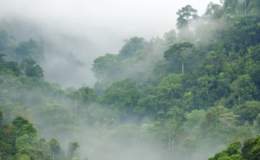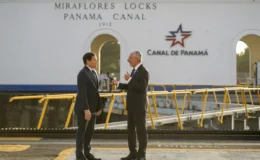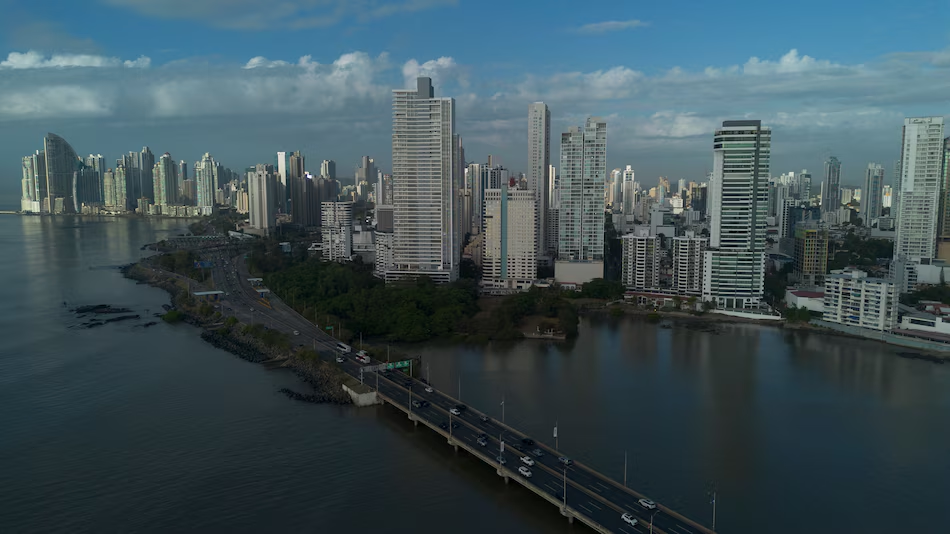Who doesn’t love a good cup of “Joe”….* NOT the lying PRICK,…….but COFFEE.
- By : James Bryson
- Category : Agriculture, Boquete, Economy, Food, Food/Bar Scene, Human Interest, Local Culture, Panama Tourism

Amid the global ecotourism boom, Panama is holding a unique event that offers a glimpse into the complex world of luxury coffee in the Central American country. Owned by landowning families for nearly a century, it now boasts a new, more public-facing approach.
The small town of Boquete, located beneath the imposing Barú Volcano, hosted the eighth edition of La Cosecha this month, a gathering that tours coffee farms to promote sustainable and culinary tourism in this region near Costa Rica.
“We want to create more spaces to reach more people; those who like coffee a little, those who like it a lot, or even the expert. We want it to be a celebration from the beginning because only here can we truly smell and feel the important energy that all coffee growers have invested for over 100 years,” Jorge Chanis, the event’s creator, told EFE.
The 2025 Harvest has allowed visitors to enter the homes and farms of leading coffee-growing families, dine with the leaders behind major companies, and taste some of the world’s most expensive coffees, such as Geisha, the luxurious Panamanian variety that breaks world records.
“Events like this, promoted by private companies, farm owners, hotels, Panamanian chefs, and international guests, help us build our brand, our country, and our tourism. And help us position ourselves in that gastronomy,” Panama’s Minister of Tourism, Gloria De León, told EFE from Boquete.
One of them was Hacienda La Esmeralda, owned by the Peterson family, Panamanians of Swedish-American origin who purchased the land in Boquete in 1967. Their coffee swept the Best of Panama 2025 competition, taking all the top spots and setting two new world records with the geisha.
Specifically, the “washed geisha” coffee obtained 98 points and the “natural geisha” 97 points, both out of a total of 100, a score never achieved by a specialty coffee in any international competition. And in the “varietal” category, their laurina coffee took first place with 92.88 points.
“We were fortunate enough to have coffee at an altitude of 2,000 meters, which gave us enough to grow one batch of natural Geisha and one batch of washed Geisha. That coffee came from Cañas Verdes (their farm), at the foot of the volcano,” explained Rachel Peterson, director of marketing, sales, and quality control at Hacienda La Esmeralda.
Coffee accounts for 0.4% of Panama’s gross domestic product (GDP), driven by the production of specialty coffees exported primarily to Asia. Panamanian coffee has entered the luxury market, fetching a record price of $13,518 per kilogram in an electronic auction in 2024.
In Boquete, there are also small coffee-growing families who have been able to make a name for themselves during the Harvest, such as Nadeia Guerra with her family business, Jaramillo Coffee State, with just two farms that she has maintained since her great-grandparents.
“Boquete is beautiful, charming, and unique. Coffee is so important and special because it allows you to work with it and give it your own identity. That’s very beautiful because it’s a very high-quality product that allows you to leave your mark,” Guerra tells EFE.
In this agricultural region, coffee is harvested at high altitudes by the Ngäbe Buglé indigenous people, one of the seven indigenous ethnic groups, taking advantage of the unusual cool climate and the benefits of being near a live volcano. However, lowland coffee has begun to be planted near the Panama Canal watershed as a sustainable project.
“Specialty coffee will also help Panamanian lowland coffee, which reforests the Panama Canal watershed and many other provinces, improve its quality and become a reality for development,” recalls the creator of the La Cosecha event.
Amidst this coffee boom in Panama, the Canadian-Panamanian Koyner family, owners of the Kotowa brand—one of the most famous—has decided to “diversify” the market by investing in cacao by making “dark chocolate.”
“We’ve been in the coffee business for over 100 years. It’s our greatest passion. But looking to diversify and explore other types of gems in Panama, we came across cacao,” Victoria Koyner, the brand’s quality control and development manager, told EFE. Koyner also has a line of chocolate under her name.
Kotowa chocolate is dense, with over 60% cacao, but it is not harvested in Boquete but in the neighboring province of Bocas del Toro (Caribbean), because it requires “fairly humid and warm soil, at sea level,” to achieve the “best quality,” explains Koyner after a tasting at his family home.
In this “quest” to expand the market, the Koyner family is also working on a cocoa husk-based tea, which was able to be tasted although it has yet to be marketed.



No Comments